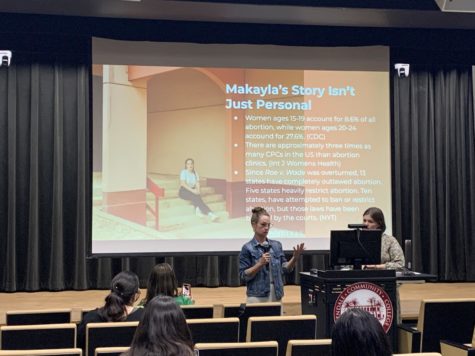Analysis: The Future of Reproductive Rights in California
California citizens desperate for certainty in a post-Roe v. Wade America

The overturning of Roe v. Wade has had innocuous effects on California citizens since reproductive rights have been protected in the state since 1969, four years before the Supreme Court ruling in favor of Roe. The explicit assertion of protection for reproductive rights in the California constitution has been put up for a vote in the upcoming midterm election.
The main crux of the proposition is that the Californian government does not recognize abortion as a fundamental human right under the law, yet it permits the procedure as just another health measure, within reasonable limits on late-term abortions, according to the California voters’ guide. The countrywide moral panic surrounding the overturning of Roe v. Wade has nudged California officials to include a proposition instating explicit protections for reproductive services in the upcoming election.
The overturning of Roe v. Wade is not a denial of reproductive rights under federal law, but rather a withdrawal of the federal government from the regulation of reproductive issues on a state level. The growing concern for the opposing side is the permissive language included in the proposition, which will allow late-term abortions at the taxpayers’ expense. In a written statement given to the California voters’ guide, Dr. Anne Marie Adams and Tak Allen, the president of the International Faith Based Coalition, state that the proposition is an attempt to “score political points” instead of making sensible policy. The primary concern of the opposition is that the proposition will create a massive influx of people seeking reproductive services, be it abortions or contraception, which will be paid for by the Californian taxpayer. An individual with a Texan equivalent of Medicare could travel to California in order to get an abortion free of charge, which incentivizes so-called “reproductive tourism,” when individuals who live in states where abortions are not legacy protected, cross state lines in order to receive the procedure.
In a speech given to GCC’s Pulitzer Center Campus Consortium, Dina Gachman, a freelance journalist, author of “Retracing the Steps of My Abortion” for the Teen Vogue,” discussed the trials and tribulations of trying to procure an abortion in Texas, from the perspective of her subject, Makayla Montoya Frasier. When asked a question about how the restrictions in Texas impede procurement of abortions, she mentioned the availability of chemically induced abortions in restrictive states through grassroots abortion funds such as “The Buckle Bunnies” fund, ran by Frasier herself. The use of drugs such as mifepristone and misoprostol could drastically reduce the amount of Red-state abortion seekers in California, yet access to these funds and the necessary resources to procure the aforementioned drugs are not readily available to run-of-the-mill, working-class women.
Tigran Aslanyan can be reached at [email protected]
